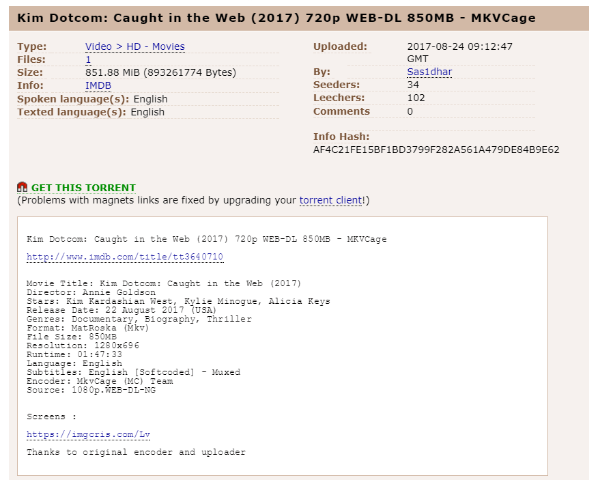
Over the years, movie theaters have used audio and video watermarking tools to detect pirates, for example. And during prominent events, night-vision goggles and other spy tech is used to monitor movie goers.
Most anti-piracy efforts are not particularly pleasing for the public, but a new technology from Philips hopes to change this. In a recent patent application the technology company proposes an ambient lighting system for movie theaters that will hinder pirate recordings.
“The major motion picture studios are losing large amounts of money due to piracy. The worldwide motion picture industry, distributors, theaters, video stores and pay-per-view operators, lose each year billions of dollars as a result of piracy,” the company begins.
Philips notes that many of the current security measures, such as watermarking, make piracy traceable. However, they don’t prevent actual recording and distribution. Watermarks can be simply rendered useless if pirates remove them afterwards, for example.
“The problem with current security measures in digital cinema is that they do not prevent pirates from filming the content from the cinema screen. Watermarks can help to identify the source of pirate content, but it does not prevent the actual copying and spreading of the content.”
The ambient lighting solution is different and Philips believes that it could reduce piracy substantially.
The concept is quite easy. By shining light on the visitors from the side, at a certain frequency, the pirate recordings will be severely degraded up to a point where they’ll become completely unwatchable.
“The solution proposed here is to shine visible light from an (additional) light source with a pre-determined modulation frequency at the cinema screen while the movie plays,” the patent application reads.
“When the frequency is chosen well, a camera will not be able to properly film the content, because the light source runs out of sync with the camera resulting in stripes running through the movie content.”
The idea is partly inspired by Philips existing Ambilight technology for TVs. This generates lighting effects around the TV that correspond to the video content. The cinema setup will do the same while hindering pirates in the process. A win-win situation, according to Philips.
“It is yet a further aspect to provide a more immersive experience when watching video content on a display device in combination with anti-piracy measures,” the patent application reads.
It’s unclear whether there are concrete plans to roll out the technology at movie theaters. Philips, however, is no stranger to these type of anti-piracy solutions. The company previously rolled out CineFence, a forensic marking technology for both image and sound, targeted at digital cinema content.
In any case, it’s a good marketing message to get movie theaters to try ambient lighting. Whether it’s really effective has yet to be seen though.
Source: TF, for the latest info on copyright, file-sharing, torrent sites and ANONYMOUS VPN services.


 Online piracy is an issue that affects many industries, and indie game development is certainly no exception.
Online piracy is an issue that affects many industries, and indie game development is certainly no exception.




 ABS-CBN, the largest media and entertainment company in the Philippines, continues its legal campaign against pirate sites in the US.
ABS-CBN, the largest media and entertainment company in the Philippines, continues its legal campaign against pirate sites in the US.


 In recent years, we have writen dozens of articles on
In recent years, we have writen dozens of articles on 


 A surge of cheap media players, which often use the open source Kodi software, has made it easy for people to stream video from the Internet directly to their TVs.
A surge of cheap media players, which often use the open source Kodi software, has made it easy for people to stream video from the Internet directly to their TVs.
